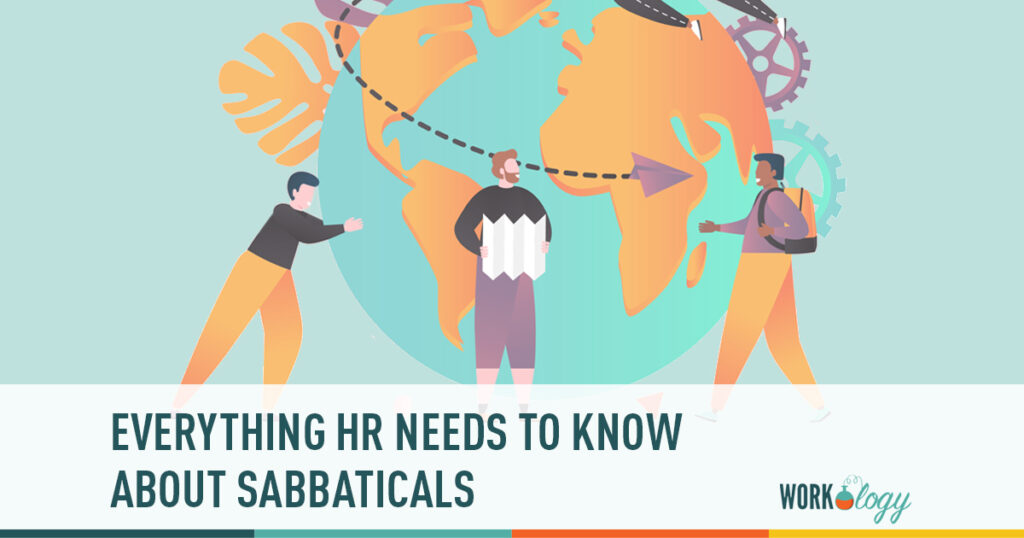Everything HR Needs to Know About Sabbaticals
Employees taking sabbaticals? You heard me correctly—sabbaticals are becoming increasingly more common in the non-academic world, especially in the private sector. A 2018 study by the Society for Human Resource Management shows that about 15% of employers were offering sabbaticals to their employees.
What is a sabbatical?
Originally, sabbaticals were a way to give professors a break to pursue research or just take time away from teaching. Now, it’s evolved to be essentially just a longer, more extended break from work, for an employee to rest, research, write, develop new professional skills, explore passions, education, or for any other reason they like.
How long does a sabbatical last?
There are no legal requirements for a sabbatical, so the requirements are up to the company. Sabbaticals can be as short as a few weeks to as long as five years.
Are sabbaticals paid?
Sabbaticals can be paid or unpaid—it’s all up to the company’s policies. However, it’s generally a good idea to offer paid sabbaticals. The whole point is to rest and take a break for the employee to focus on themselves. They can’t do that if they have to find a side gig or worry about money. Offering paid sabbaticals is a great way to build trust between the company and employees.
How is a sabbatical different from a vacation or other types of time off?
Because a sabbatical is often longer than a vacation, it’s important for companies to treat it differently–a company will most likely have to train a replacement or somehow cover the duties of the employee on a sabbatical.
Usually, the purpose of a sabbatical is different than a vacation–sabbaticals are usually used for professional development, while vacations are usually used for stereotypical rest, relaxation, and travel.
A sabbatical is also different than unlimited paid time off (PTO) in that it’s acceptable for an employee to take paid leave for an extended period of time for a sabbatical, whereas with unlimited PTO, employees may face anxiety taking a large period of time off due to fears they’ll be terminated or reprimanded for using so much unlimited PTO.
If you want to learn more about the different types of paid and unpaid time off, you can check out this post: 12 Types of Paid and Unpaid Leave and Time Off | Workology
Examples of sabbaticals in non-academic companies
Facebook offers their employees sabbaticals. Their policy, called Recharge, allows eligible employees to take 30 days of paid time off every five years.
Patagonia has a semi-sabbatical policy. They allow their employees to take two months away from work to work for an environmental group of their choice while being paid.
McDonald’s has a sabbatical program where eligible employees can take an eight-week paid sabbatical every ten years.
Sample Policy
Eligible employees can go on paid sabbatical leave to seek out professional development, research, or other creative interests.
Sabbaticals can last up to five consecutive months, and can only be taken every five years. Employees will be paid their full salary during this time, with pay being disbursed at the usual biweekly pay dates.
Employees are eligible for sabbatical leave if they have worked at the company for at least five years as full-time employees.








One Comment
i would apprciate the opportunity to be of your team
Comments are closed.